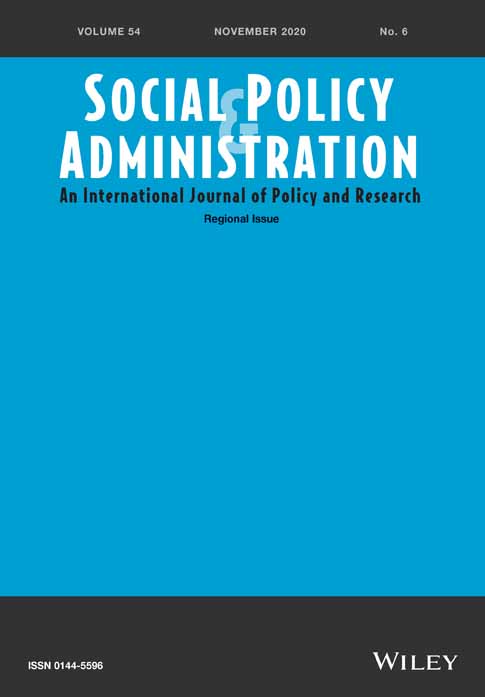Equity versus equality: Discourses and practices within decentralized welfare-to-work programs in California
Abstract
The U.S. welfare reform of 1996 brought about highly decentralized Welfare-to-Work (WTW) programs, granting discretion to states and local governments to implement policies. Previous research has emphasized racial disparities in WTW sanction rates, by focusing on state/county characteristics or frontline-workers' biases. There is a dearth of research focusing on different understandings of equity or equality and corresponding practices embedded within WTW programs at the state and local levels. This knowledge is important to better understand how race disparities in WTW may be shaped. Our case is California's comparatively generous and highly devolved WTW program and its implementation in two most different counties. Descriptive analysis of administrative data reveals racial disparities in WTW sanctions and exemptions at the state-level and contrasting racial disparity patterns across two counties. Drawing on an equity framework, critical discourse analysis (CDA) of policy documents and interviews at the state level reveals conflicting discourses and practices around equity and equality, leaving room for interpretation at local agencies. CDA of county-level documents and interviews with county administrators showcases contrasting discourses and practices: while one county operates on an equality discourse that does not challenge existing disparities, the other county adopts an equity-related discourse of providing better treatment towards some historically disadvantaged groups. The observed discourses and practices help to understand the different racial disparity patterns. We conclude that in the absence of a clear equity framework at the state level, decentralization in WTW complicates the manner in which equity discourses and practices play out at the local level.
CONFLICT OF INTEREST
Hereby we confirm not to have any conflict of interest.




